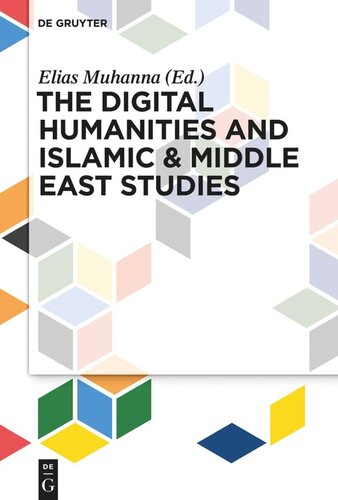

Most ebook files are in PDF format, so you can easily read them using various software such as Foxit Reader or directly on the Google Chrome browser.
Some ebook files are released by publishers in other formats such as .awz, .mobi, .epub, .fb2, etc. You may need to install specific software to read these formats on mobile/PC, such as Calibre.
Please read the tutorial at this link: https://ebookbell.com/faq
We offer FREE conversion to the popular formats you request; however, this may take some time. Therefore, right after payment, please email us, and we will try to provide the service as quickly as possible.
For some exceptional file formats or broken links (if any), please refrain from opening any disputes. Instead, email us first, and we will try to assist within a maximum of 6 hours.
EbookBell Team

4.0
36 reviewsOver the past few decades, humanistic inquiry has been problematized and invigorated by the emergence of what is referred to as the digital humanities. Across multiple disciplines, from history to literature, religious studies to philosophy, archaeology to music, scholars are tapping the extraordinary power of digital technologies to preserve, curate, analyze, visualize, and reconstruct their research objects.
The study of the Middle East and the broader Islamic world has been no less impacted by this new paradigm. Scholars are making daily use of digital tools and repositories including private and state-sponsored archives of textual sources, digitized manuscript collections, densitometrical imaging, visualization and modeling software, and various forms of data mining and analysis. This collection of essays explores the state of the art in digital scholarship pertaining to Islamic & Middle Eastern studies, addressing areas such as digitization, visualization, text mining, databases, mapping, and e-publication. It is of relevance to any researcher interested in the opportunities and challenges engendered by this changing scholarly ecosystem.